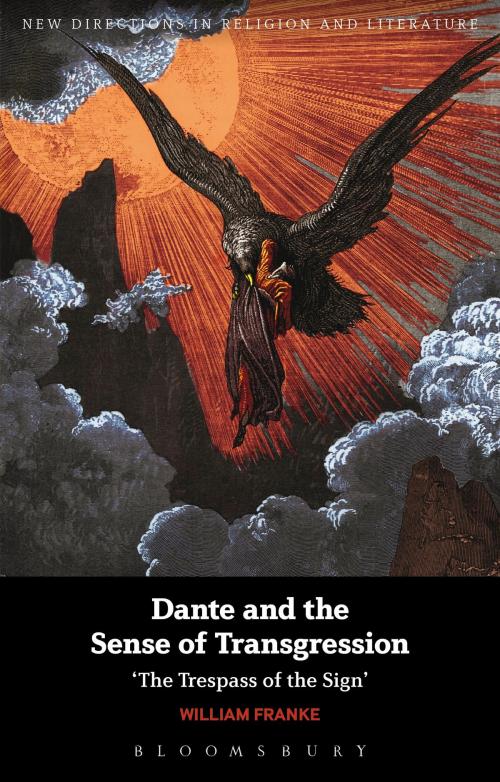Dante and the Sense of Transgression
'The Trespass of the Sign'
Fiction & Literature, Literary Theory & Criticism, Medieval, European, Theory| Author: | Professor William Franke | ISBN: | 9781441185020 |
| Publisher: | Bloomsbury Publishing | Publication: | November 22, 2012 |
| Imprint: | Bloomsbury Academic | Language: | English |
| Author: | Professor William Franke |
| ISBN: | 9781441185020 |
| Publisher: | Bloomsbury Publishing |
| Publication: | November 22, 2012 |
| Imprint: | Bloomsbury Academic |
| Language: | English |
In Dante and the Sense of Transgression, William Franke combines literary-critical analysis with philosophical and theological reflection to cast new light on Dante's poetic vision. Conversely, Dante's medieval masterpiece becomes our guide to rethinking some of the most pressing issues of contemporary theory.
Beyond suggestive archetypes like Adam and Ulysses that hint at an obsession with transgression beneath Dante's overt suppression of it, there is another and a prior sense in which transgression emerges as Dante's essential and ultimate gesture. His work as a poet culminates in the Paradiso in a transcendence of language towards a purely ineffable, mystical experience beyond verbal expression. Yet Dante conveys this experience, nevertheless, in and through language and specifically through the transgression of language, violating its normally representational and referential functions. Paradiso's dramatic sky-scapes and unparalleled textual performances stage a deconstruction of the sign that is analyzed philosophically in the light of Blanchot, Levinas, Derrida, Barthes, and Bataille, as transgressing and transfiguring the very sense of sense.
In Dante and the Sense of Transgression, William Franke combines literary-critical analysis with philosophical and theological reflection to cast new light on Dante's poetic vision. Conversely, Dante's medieval masterpiece becomes our guide to rethinking some of the most pressing issues of contemporary theory.
Beyond suggestive archetypes like Adam and Ulysses that hint at an obsession with transgression beneath Dante's overt suppression of it, there is another and a prior sense in which transgression emerges as Dante's essential and ultimate gesture. His work as a poet culminates in the Paradiso in a transcendence of language towards a purely ineffable, mystical experience beyond verbal expression. Yet Dante conveys this experience, nevertheless, in and through language and specifically through the transgression of language, violating its normally representational and referential functions. Paradiso's dramatic sky-scapes and unparalleled textual performances stage a deconstruction of the sign that is analyzed philosophically in the light of Blanchot, Levinas, Derrida, Barthes, and Bataille, as transgressing and transfiguring the very sense of sense.















